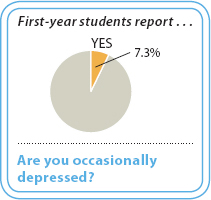Strategies to Improve Ei
It might not be easy to improve your EI—old habits are hard to change—but it can definitely be done. Here are some suggestions:

- Identify your strengths and weaknesses. Take a hard look at yourself and consider how you respond to situations. Most people have trouble assessing their own behaviors realistically, so ask someone you trust and respect for insight. If you have an opportunity to take a formal EI test or meet with a behavioral counselor, by all means, do so.
- Set realistic goals. As you identify areas of emotional intelligence that you would like to improve, be as specific as possible. Instead of deciding to be more assertive, for example, focus on a particular issue that is giving you trouble, such as nagging resentment toward a friend who always orders the most expensive thing on the menu and then expects to split the whole check evenly.
- Formulate a plan. With a particular goal in mind, identify a series of steps you could take to achieve the goal and define the results that would indicate success. As you contemplate your plan, consider all the emotional competencies. You might find that to be more assertive with your friend about the restaurant situation, for instance, you need to figure out why you’re frustrated (emotional self-awareness), identify possible causes for your friend’s behavior (empathy), and consider what you might be doing to encourage it (reality testing).
- Check your progress on a regular basis. Continually reassess whether or not you have met your goals, and adjust your strategy as needed.